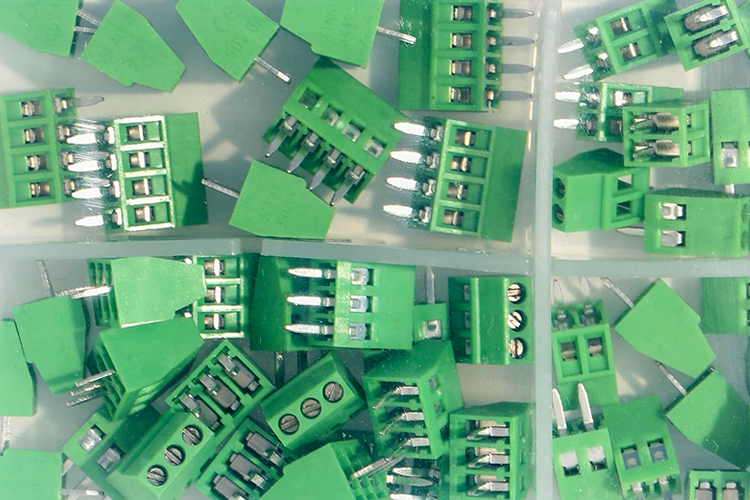How to Choose the Right Terminal Block Connector

Choosing the right terminal block connector involves considering several factors to ensure it meets the specific needs of your application. Here are some key points to help you make an informed decision:
- Electrical Performance
- Current Capacity: Choose a terminal block that can handle the required current load to avoid faults or safety hazards caused by overloads.
- Voltage Rating: Ensure the terminal block meets the system's voltage requirements to ensure electrical safety.
- Contact Resistance: Lower contact resistance helps reduce energy loss and heat generation, improving system efficiency.
- Mechanical Performance
- Connection Stability: The terminal block should provide a reliable connection that resists loosening due to vibration or shock.
- Durability: Consider the wear resistance of the terminal block, especially if frequent plugging and unplugging are expected.
- Environmental Adaptability
- Temperature Range: The terminal block should operate correctly within the expected temperature range.
- Protection Level: In harsh environments with dust, moisture, or corrosive gases, choose a terminal block with the appropriate protection level.
- Safety
- Insulation Properties: The insulation material of the terminal block should provide sufficient electrical isolation to prevent short circuits or electric shock.
- Flame Retardancy: For specific applications, the flame retardancy of the terminal block might be an important factor.
- Compatibility
- Wire Size: Ensure the terminal block is compatible with the wire sizes required for the connection.
- Interface Type: The interface type of the terminal block should be compatible with other components in the system.
- Installation and Maintenance
- Installation Method: Consider whether the installation method of the terminal block suits the site conditions, such as DIN rail or panel mounting.
- Maintenance Convenience: Choose a terminal block that is easy to maintain and replace for future system upgrades or repairs.
- Cost-Effectiveness
- Budget Constraints: Consider the cost of the terminal block while ensuring it meets performance requirements to achieve the best cost-performance ratio.
- Manufacturer and Brand
- Quality Assurance: Choose reputable manufacturers and brands to ensure the quality of the terminal block and reliable after-sales service.
- Certifications and Standards
- Compliance: Ensure the terminal block complies with relevant international or national standards, such as UL, CE, RoHS, etc.
By considering these factors, you can select the terminal block connector that best suits the specific application needs. This not only helps ensure the stability and safety of the electrical system but also provides reliable performance and benefits over long-term use. Choosing a high-quality terminal block connector will provide a solid foundation for your electrical system, ensuring successful connections every time.





